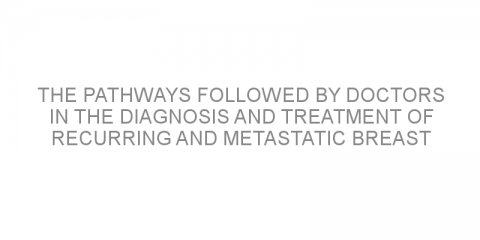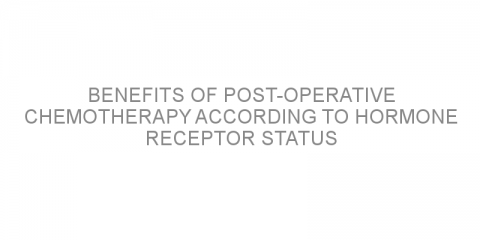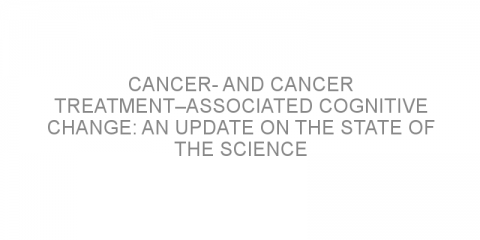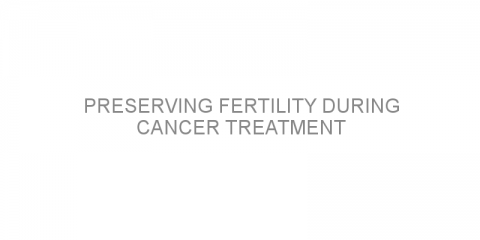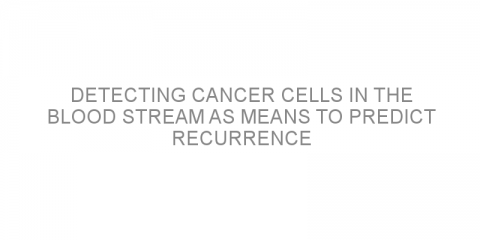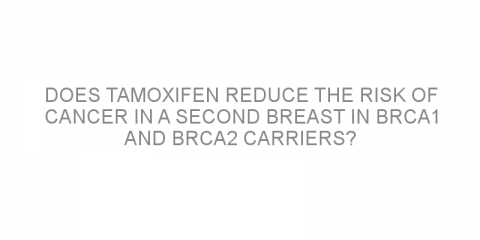This paper evaluates the process health care professionals follow to diagnose a cancer that reoccurs in the same location as a previous cancer (locally recurrent), or a cancer that has spread (metastasized). Despite earlier detection and improved treatment options for breast cancer, it is still the leading cause of cancer related deaths in...
Read MoreCurrent stage-Inflammatory breast cancer Posts on Medivizor
Bosutinib: a new drug that increases progression free survival in patients with locally advanced or metastatic breast cancer
In a nutshell This paper presents the results of a clinical study which looked at the use of a new drug called Bosutinib (Bosulif) for the treatment of breast cancers diagnosed as being stage III or IV. In patients previously treated with chemotherapy, Bosutinib showed promising efficacy in delaying cancer progression. Some background Locally...
Read MorePhase I trial to determine the safety of a new anti-cancer drug: PD 0332991
In a nutshell This article presents the results from the first human trial of PD 0332991, a new anti-cancer drug. The main objective of the study was to determine the safety and recommended dose for further testing. Results warrant further studies and revealed that neutropenia (low white cell count) was the main side effect. Some background Cells...
Read MoreTreating Chemobrain: Rehabilitation Therapies Emerge
‘Chemobrain’ is the colloquial term for changes in cognitive functioning following chemotherapy for cancer treatment. As a result of a growing need, more cancer centers started testing interventions for cancer-related cognitive dysfunction, notably cognitive behavioral therapy (CBT). The paper presents an overview on current studies...
Read MoreBreast reconstruction for breast cancer patients
The present review discusses the principles, methods and complications of breast reconstruction surgery for breast cancer patients who need mastectomy (surgical removal of the entire breast). Women with breast cancer often need extensive surgeries to eliminate the cancer, along with healthy breast tissue, skin or the nipple and areola (the darker area...
Read MoreThe association between insulin blood levels and risk of death in breast cancer patients
In a nutshell The present study evaluated the relationship between high insulin levels in the blood stream and the risk of cancer-related mortality. Its authors report that women with higher-than-normal insulin levels are at higher risk of death due to breast cancer. Some background Breast cancer has been shown to be more common in people who...
Read MoreBenefits of post-operative chemotherapy according to hormone receptor status
In a nutshell This study compared the benefits of chemotherapy according to hormone receptor status. The main findings were: In cancers without hormone receptors, the benefits of adding chemotherapy were significant; In cancers with hormone receptors, chemotherapy only offered modest improvement. Some background Some...
Read MoreCancer- and Cancer Treatment–Associated Cognitive Change: An Update on the State of the Science
This article summarizes recent findings regarding cognitive problems and decline in patients previously treated with chemotherapy. It gives a comprehensive overview of results from neuropsychological, imaging and animal studies. It also proposes investigating post-chemotherapy mental decline in the context of the normal aging process. In long...
Read MorePreserving Fertility during Cancer Treatment
In a nutshell This paper reviews available options for having children after cancer treatment. The main conclusion is that sperm, egg and embryo preservation techniques can help young women have children after breast cancer treatment. Alternative options, such as ovarian tissue preservation, are also being developed. Some background...
Read MoreDetecting cancer cells in the blood stream as means to predict recurrence
In a nutshell The present study evaluated whether the presence of cancer cells in the blood stream predicts a worse prognosis in women with operable breast cancer. The main finding was that progression-free survival (time before cancer progression) and overall survival were lower if circulating cancer cells were detected in the blood. Some background...
Read MoreDoes Tamoxifen reduce the risk of cancer in a second breast in BRCA1 and BRCA2 carriers?
In a nutshell The risk of breast cancer is high (~80%) in women who inherit a damaged (mutated) gene called BRCA1 or BRCA 2 (‘BRCA carriers’). Following the first diagnosis, their risk of developing another tumor in the second breast within 10 years is 30%. Some background Some types of breast cancer need estrogen (female sex...
Read More
